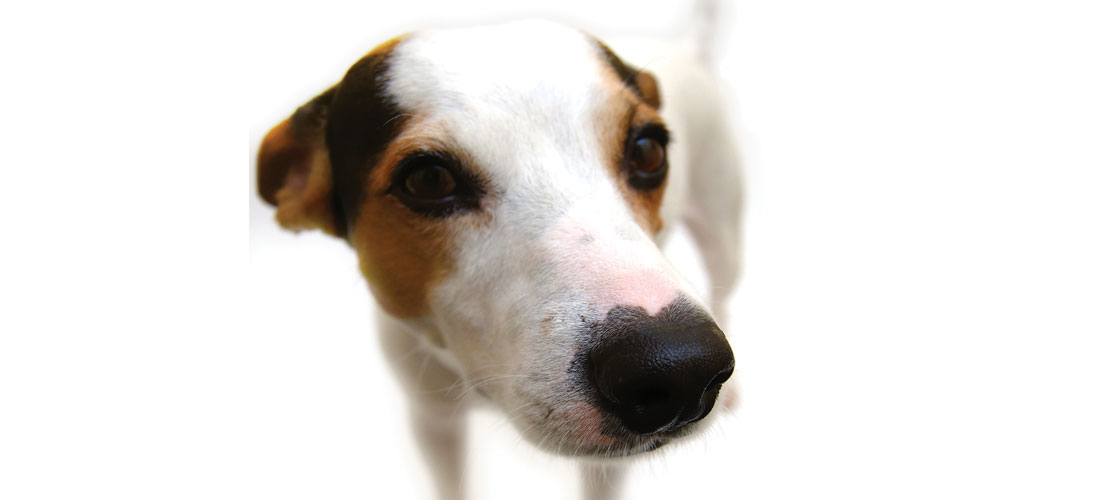
It’s a Dog Meet Dog World
By Maria Johnson
There are times, when you’re tromping around with Don Brown at his Siendo Farmstead in McLeansville, that you know he is talking about dogs, but he could be talking about other creatures, too.
“A dog carries with him a social experience wherever he goes,” Don says. “If that social experience is torn or marred, then you’re going to have problems.”
For the record, we don’t consider Rio, our 8-year-old foxhound, a problem dog. From the time we found him, bony, beaten up and beaten down by whatever had passed in the two years before my younger son heaved him from roadside to backseat, our family has considered this gentle and skittish hound a blessing and an enigma, which is a blessing in its own way.
We pay more attention to a mystery, don’t we?
By “we,” I mean humans. And maybe dogs, too. That’s why I’m here, to learn more about dogs in general and about my dog in particular. The instrument: a WalkAbout with Don, who started his canine jaunts about 10 years ago, after a long hitch in dog training and doggie daycare left him with more questions than answers.
Sure, if people taught their dogs to sit on command, they would feel better about themselves, Don observed. But what were their dogs thinking? How did they see the people? And other dogs? What was going on between them?
Even if obedience was the only thing that mattered to you, the social part was relevant.
“A socially healthy dog will tend to be easier to train,” says Don.
That’s when Don and his wife Hutsie, opened their 16-acre property to friends and others who heard about their LifeStyle Dog Training business by word of mouth. For a small fee, folks and their dogs could roam the fenced farm with Don and his dogs, and sometimes with other owners and their dogs. Don called the events WalkAbouts after the Aboriginal practice of booting young men into the wild where, in the company of other young men, they learn who they are and how they fit into society.
Don did the same with dogs: He turned them loose in nature and watched them become themselves, which they can only do, he says, with other dogs.
“It’s a dose of dogs that dogs need to orient how they think and perform socially,” he says. “A dog needs to be with other dogs at times.”
Don’t mistake Don for an advocate of dog parks. He’s not a fan. Too many owners misread their pooches and other dogs, some of which should not be unleashed in a public spaces. That’s why Don screens visitors — both human and canine — with an application and in-person evaluation.
Having cleared the application hurdle, Rio and I rumble into Don’s driveway shortly before noon. I pop the hatch. Rio jumps out, sniffs a fence with Don’s dogs on the other side, pees on the fence (nice to meet you), sniffs, pees again and trots off to trace every boundary on the farm — fence lines, tree lines, shore lines — with his keen snout.
“His world is full of scent, not so much pictures,” Don says, drawing a contrast between scent hounds and sight hounds such as his own dogs, silken wind hounds, which like greyhounds, employ their eyes more than their noses.
Don characterizes scent hounds as “ignorantly bold.” He heeds the power of breed and age — and temperament, which is inborn and expressed in behavior, which in turn is molded by experience, but only to a point.
In other words, dogs are who they are.
Don releases one of his laid-back dogs, 9-year-old Logan. He and Rio barely nod to each other. Rio skips into the woods. Don shakes the cocktail by adding 3-year-old Cora, 9-year-old Cimarron and 12-year-old Belita. We travel as a crew in search of Rio.
We spot him on the far side of the pond. I call. He gallops toward us then halts. He is wary of the pack, even with me standing in their midst.
I call again. He barrels toward us. He draws closer and . . . whoosh, buzzes by us at full speed.
Don’s dogs stand still. You can almost hear them saying, “What the . . . ?”
They’re stumped. And so is Rio. Dogs, like people, search for familiar ground, a sameness that comforts them, Don says. Rio is reaching out in a way that usually works for him, provoking a playful chase.
He tries one more fly-by with no luck. He disappears into the woods, re-emerging only after I separate from Don and his dogs. He sticks close as we walk back to the house, where Don puts the dogs into a smaller yard. Rio noses around the edges, but he and other dogs don’t engage.
Don’s diagnosis: Rio’s sensitive and stoic with a hefty helping of stage fright.
Sometimes, he distances himself from group experiences that could help him. Like some male dogs, he has a narrow vision of social life. He could benefit from more mixers with dogs and from more “check-ins” that reward eye contact with humans.
“You’re in a position of opening his mind,” Don says.
All of which rings true. And would be fair because Rio has opened my mind, this once- indifferent dog that now “talks” to me when he wants something; who finds me sitting on the patio steps and rests his head on my shoulder; who literally jumps for joy whenever he sees his houndy friends Henry, Annabelle, Archie, Pumpkin and Sally.
He is wonderfully complex, never wholly predictable, ever evolving, full of quirks and love, abilities and fears, a unique bundle of past and present.
He is, after all, who he is.
We’re talking about dogs, right? OH
Maria Johnson is a contributing editor of O.Henry. Contact her at ohenrymaria@gmail.com. Reach Don Brown at LifeStyleDog@aol.com.





